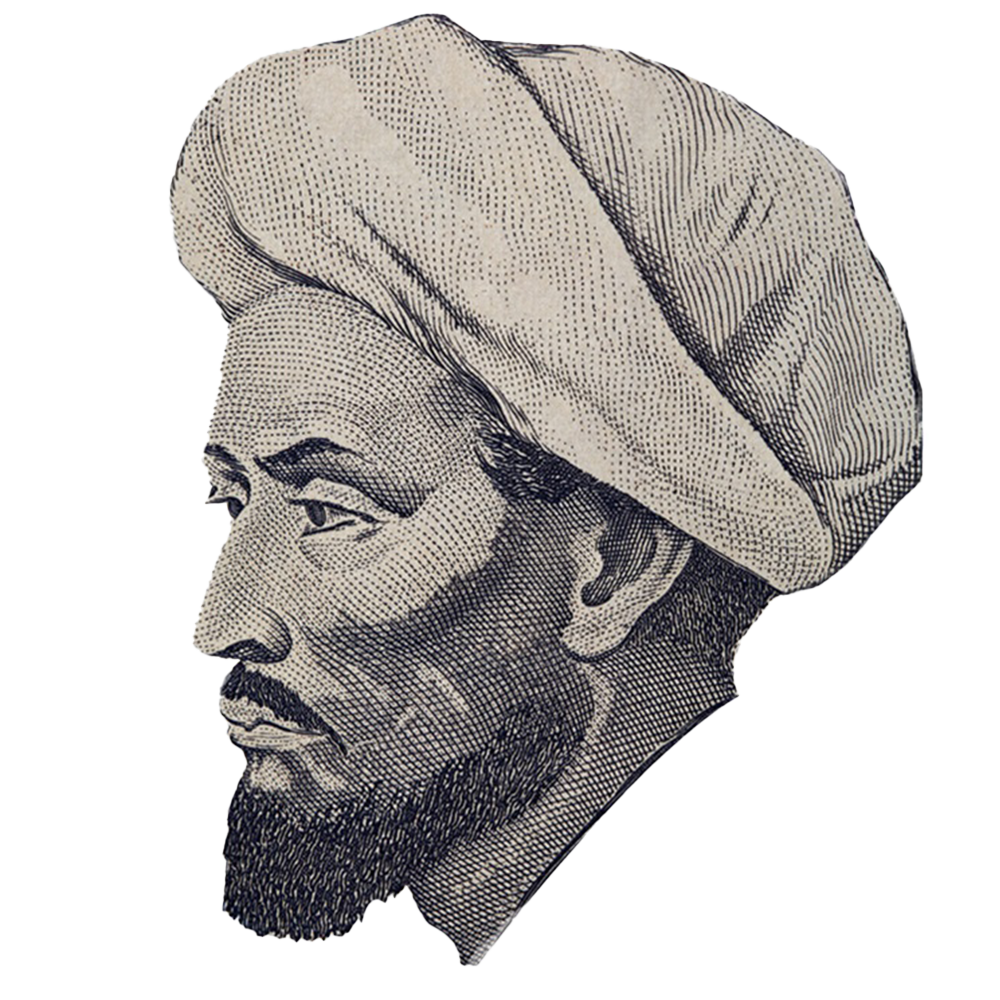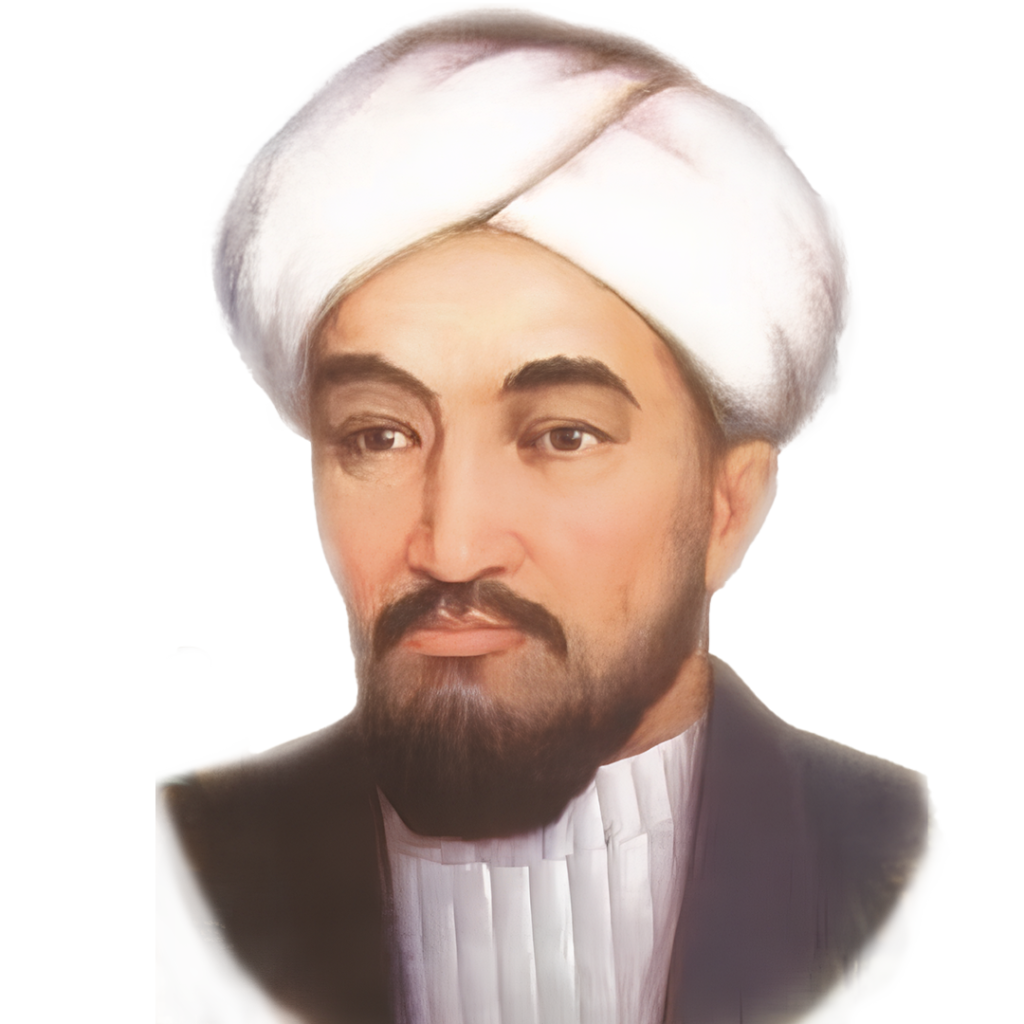We offer a unique experience where you can interact with El-Farabi brought to life through artificial intelligence, allowing you to ask questions and receive answers in his voice. Thanks to this innovative technology, you can benefit from the deep wisdom and wide range of works of Al-Farabi, one of the greatest thinkers of Islamic philosophy and science. Al-Farabi is known as one of the most influential philosophers of the Middle Ages, and his work has left deep traces not only in the Islamic world but also in Western thought.
This interactive experience offers the opportunity to get to know Al-Farabi’s life, philosophical views, scientific contributions and social thoughts.

The development of Artificial Intelligence is revolutionizing the way humanity accesses and understands information. For those who want to explore the philosophical heritage of great thinkers such as Farabi, the latest example of this revolutionary change comes to life on an AI-powered platform. Farabi’s thoughts, his influence from his time to the present day, and his works have left deep traces in the history of human thought. This platform allows users to take a closer look at Farabi’s life, philosophical approaches and works. Through an interactive experience guided by artificial intelligence, users can delve deeper into Farabi’s thoughts, analyze his philosophical arguments and understand his vision. It is not only an academic research tool, but also a bridge to bring Farabi’s thought and legacy to a wider audience and to understand it. This AI-powered platform revitalizes users’ interest in philosophical thought.

Farabi was born in 872 in Farab (Otrar region of present-day Kazakhstan) in a family of Iranian origin. Farabi’s family came from an educated and knowledgeable environment that could contribute to the cultural and intellectual development of that period. Farabi, who started his education at a young age, first received his basic education in his hometown Farab. During this period, he acquired basic knowledge of Islamic culture and sciences. Farab, as one of the leading educational centers of the Islamic world, provided a solid start for the young Farabi. Farabi then went to Baghdad, where he continued his education at the Bayt al-Hikma (House of Wisdom), the most important science and philosophy center of the period. As the capital of the Abbasid Caliphate, Baghdad was the intellectual center of the Islamic world, where he received in-depth training in various disciplines such as logic, philosophy, mathematics, astronomy, medicine, music and linguistics. During this period of Farabi’s education, the study of Greek philosophy was intensified in Baghdad, and these studies played an important role in shaping Farabi’s world of thought.
Baghdad was the most important center of science and culture in the Islamic world at that time. This city was a place where Greek philosophy was translated into Arabic and blended with the intellectual accumulation of the Islamic world. During his stay in Baghdad, Farabi studied and interpreted Aristotle’s works in depth. He developed Aristotle’s views on logic and metaphysics by harmonizing them with Islamic philosophy. Farabi’s interpretations of Aristotle’s works led him to be known as the “Second Teacher”. This title reflects his recognition as the most important philosopher after Aristotle.
Farabi wrote important works in the field of logic in Baghdad, and these works were used as the main reference in the Islamic world for a long time. He also worked in the fields of mathematics, astronomy and medicine and made important contributions in these disciplines. Farabi’s works on music theory also reveal his knowledge and skills in the field of music.
After his long and productive years in Baghdad, Farabi went to Diyarbakır. Farabi continued his intellectual work in Diyarbakır, where he exchanged ideas with the leading thinkers and scientists of the period and continued to develop his own philosophical views. This period in Diyarbakır can be considered as a period in which Farabi reached philosophical maturity and began to write his important works.
After Diyarbakır, Farabi went to Damascus. Damascus was also an important cultural and intellectual center at that time. Farabi wrote important works such as “Al-Medinetü’l-Fazila” (The Virtuous City) in Damascus. In these works, he addressed issues such as the ideal state and what kind of virtue rulers should have. Farabi’s work in Damascus is the period when his philosophical and scientific knowledge reached its peak.
Farabi died in Damascus in 950. The works and thoughts he left behind after his death had a great impact both in the Islamic world and in the West. Farabi’s works have been among the main reference sources of philosophical debates and scientific studies for centuries. Farabi’s intellectual endeavors throughout his life and the legacy he left behind made him one of the greatest names in Islamic philosophy.
Farabi’s education focused on the works of ancient Greek philosophers, especially Aristotle and Plato. Farabi, who translated and interpreted the works of these philosophers into Arabic, blended their philosophical systems with Islamic thought and made a great contribution to the understanding of philosophy in the Islamic world.
This is why Farabi is referred to as “Muallim-i Sani” (Second Teacher); the “First Teacher” is Aristotle.
Farabi’s influence is far-reaching. His work in logic and philosophy played a major role in shaping medieval Islamic thought and had a profound influence on later Islamic philosophers, especially Ibn Sina and Averroes.
In addition, Farabi’s work on music theory, “Kitāb al-Mūsīqa al-Kebīr”, has been recognized as an important reference in the field of music.
Farabi’s political philosophy, especially in his work “El-Medinetü’l-Fâzıla” (The Virtuous City), discussed the ideal society and state structure. This work has inspired studies on political theory and social order both in the Islamic world and in the West.
In conclusion, Farabi’s wide range of knowledge and his ability to synthesize this knowledge made him an important thinker who left a lasting legacy in the field of philosophy and science both in the Islamic world and in the West. Farabi left his mark on history.
Kitāb al-Mūsīqa al-Kabīr (The Great Book of Music): This is a comprehensive work on music theory and practice. In this book, Farabi discusses the theoretical foundations of music in detail.
Kitāb al-Hurūf (Book of Letters): An important work on the philosophy of language and logic. In this book, Farabi examines the logical structure of language.
Kitāb al-Ibāna an ilāhi al-Aristo (Explanation of Aristotle’s Understanding of God): This work explains and interprets Aristotle’s metaphysical views.
Kitâbü’l-Siyâsetü’l-Medeniyye (Book of Civilized Politics): Farabi’s important work on political theory. Discusses the ideal state and the characteristics of the ruler.
Kitâb al-Mille (Book of Religion): A work on the philosophy of religion and social order.
Tahsil al-Saade (The Acquisition of Happiness): A work on happiness and virtue. Farabi discusses how human beings can achieve happiness.
Fusūl al-Medenī (Civil Chapters): In this work, Farabi presents his thoughts on political philosophy and ethics.
Ihsâü’l-Ulûm (Enumeration of Sciences): This work was written on the classification and definition of sciences.nar. Farabi systematically examines various branches of science.
Browse our most watched content on the topic and discover our viewers’ favorite topics and popular discussions. Don’t miss out on these special episodes that captivate and provoke thought.

İstanbul Okulu; dinî ve felsefî pek çok meseleyi uzman konuklarla ele almayı hedefleyen yepyeni bir YouTube kanalıdır.